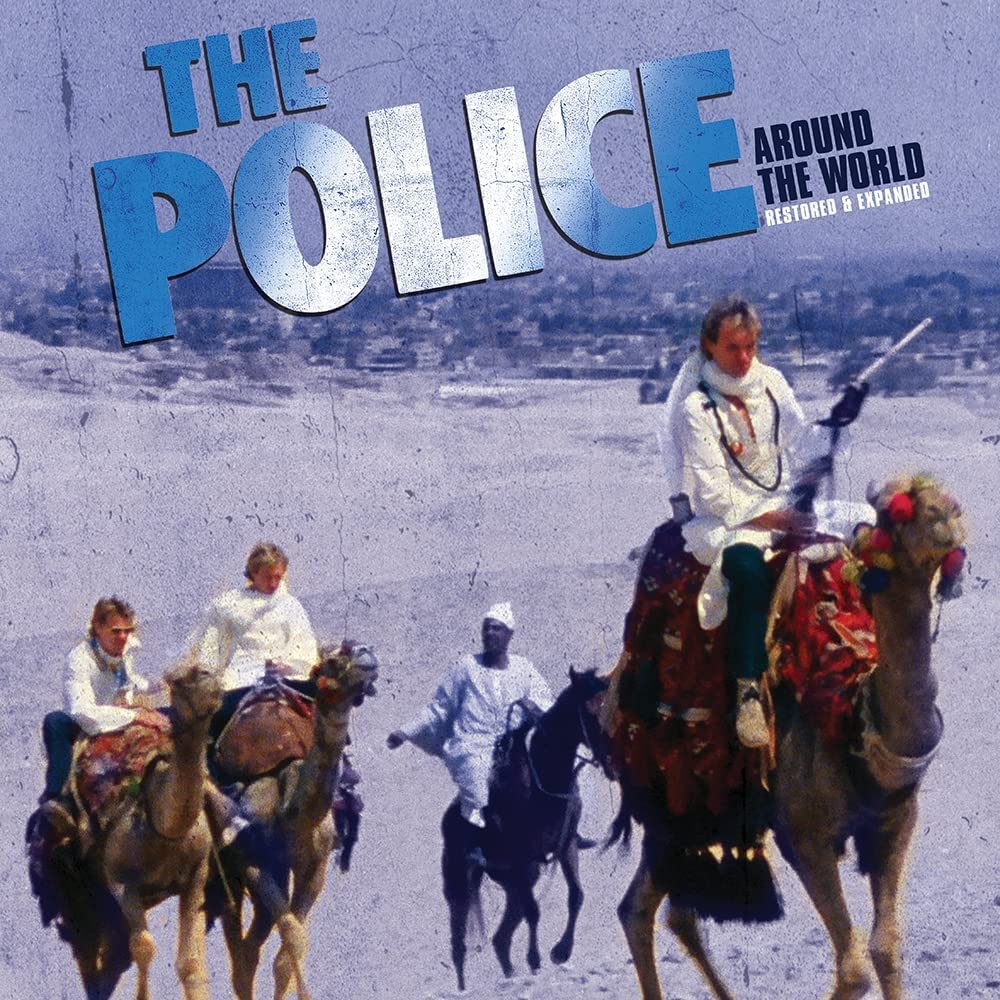
Even though The Police had more than its fair share of tension within its ranks, it was also a band that serendipitously timed-up its multi-platinum run of global success with an era that encouraged if not required a camera-friendly appearance. Coinciding with the rise of MTV, here were three spectacular, post-punk musicians just as willing to play as a fair-haired Marx brothers update when the red light turned on. Around the World, first released only on VHS 40 years ago; now debuting on DVD and with an accompanying live CD, puts aside any and all of the internal unrest that may have existed in the group and instead offers 60 minutes of the three enjoying each other’s company to full comedic and musical expression; just a fun-loving trio touring the world. It’s guitarist Andy Summers as a Sumo wrestler. It’s Sting as a rickshaw driver. It’s Stewart Copeland drumming on every surface, or concurrently filming every moment. It’s The Police as gauchos on horseback in South America. Or golden surf bums, emerging from the ocean. Sting owns the role of the slightly brooding, cool-as-ice leader; several times shirtless, or in a Speedo, or cruising on a motorcycle. Meanwhile, Summers endures the embarrassment of his rather revealing Sumo attire. Copeland is mostly spared, though he does anchor a campy camel scene in Egypt.The hour-long doc has a good amount of concert clips and, by virtue, an ancillary look at the innocent, yet rabid fandom that pursued The Police in 1979 and ’80. There are the most benign of stage-crashers in Japan; the swath of blond wigs dotting an audience in America; and the incredibly sweet Time and Talent Club of middle-aged women promoting the band’s appearance in India (prior to The Police, Suzi Quatro- Happy Days’ Leather Tuscadero- was the ladies’ biggest get). The Police handle each of those moments with knowing gratitude and respect, without any sense of ego. Musically, the band is frothing with energy and invention. Sting’s vocals and bass- perfectly matched; Copeland’s drumming is a masterclass; Summers’ variety of guitar work reinvents the purpose and capability of the instrument within the genre. The group was not yet the Synchronicity superstars they would become, but instead a hard-working band sweating and selling out clubs and theaters anywhere; more adventure than job, and it wouldn’t last; The Police would split in 1984, at the height of its success. The look back to the early days seems longer ago than the 40 years it is. The cameras, for sure, brought out the actor in each. Yet, they also captured a time of genuine frivolity, and access to and for The Police that would never be repeated. Around The World was right in-step with the age of MTV, but, in hindsight, it was also foreshadowing the social media revolution that would follow decades later; as the onstage and offstage lives of the artists’ blur into one.
